One of the most colorful and exciting days of the year in the Netherlands is Prince’s Day, when the king rides in his horse-drawn carraige in a major parade through town with lots of marching bands, soldiers on horseback wearing traditional colorful outfits and thousands of people cheering.
.jpg)
It’s a big outdoor party for people of all ages, and kids are especially happy because they get the day off from school.
You might be surprised to think that a political speech presenting the annual budget would turn out such an enthusiastic crowd, but it’s really all about the king and the people’s long-standing love and appreciation for the monarchy -- plus everyone likes the razzle-dazzle of a fancy parade with various marching bands and many soldiers passing by in colorful historic uniforms, some marching, others on horseback.

This special day happens just once a year, on the third Tuesday in September, and begins at the stroke of one when the king, accompanied by other members of the royal household, leaves the Noordeinde Palace in his horse-drawn carriage. He is heading to parliament to give a speech, accompanied by court dignitaries and a military escort of honor.

The route of the royal procession runs through the center of town from the palace to Hall of the Knights at the Binnenhof palace complex, a distance of about 1 kilometer and there are thousands of Dutch people lined up waiting to see their king parade by.
To get the best viewing position upfront along the route, with all that crowd, people get here hours early and wait patiently for the parade to pass by. There is no charge for watching the parade, but it takes some energy and perseverance because it’s standing room only, except for the grandstands, which provides some of the best views. However, that does require admission tickets which are free and can be booked from the Tourist Information Center, a strategy the locals have experience with.

Most people just line up along the streets and then strain to get a good look. If they’re not in the front they’ve got to look up and above and between the people in front of them. It gets pretty crowded, but there’s never any pushing or shoving. To the contrary, it’s a friendly and festive occasion. Everybody is very polite.
.jpg)
Many of the young students are wearing their traditional outfits, which vary in style from one town to the next. It’s a school holiday for the kids, and many of them are brought in from nearby rural towns, smaller towns outside of The Hague, for the special event, often coming in by train with their chaperons and teachers.
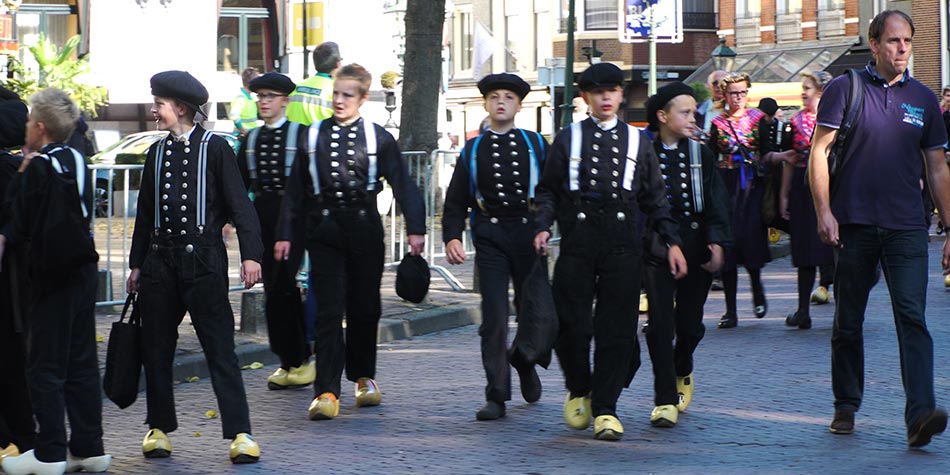
If you had thought the famous Dutch wooden shoes are things of the past or items that you would only find in a tourist gift shop, well think again. They are still worn and not just on ceremonial occasions like this but out in the rural areas. It’s not unusual to find farmers in the field wearing wooden shoes because they’re actually very functional in that setting.
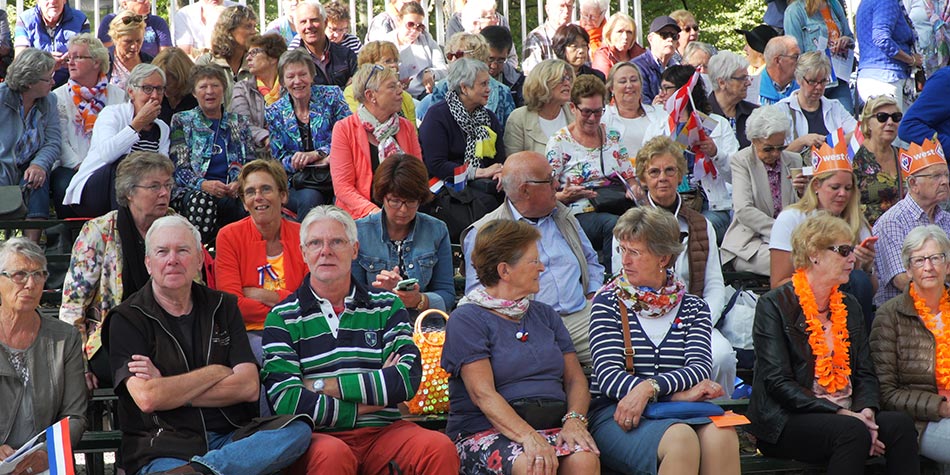
People keep streaming in for hours before the parade to find a good position to view the parade, sitting in the stands or lined up along the fences.
The main purpose for this event is the speech, something similar to the State of the Union speech in the United States, or the Queen of England delivering her annual speech to the British Parliament. It’s the government proposing its plan for the year, presenting its budget and talking about issues and challenges that face them in the coming year.

The speech is not actually written by the king, but it is put together jointly by the ministers and secretaries of State and outlines the government’s financial plans for the coming year. Every minister makes a contribution in his or her field of policy which are integrated into this one speech.
The Netherlands is a parliamentary democracy with the House of Representatives and Senate, which means that citizens have a say in how the country is run. The king is the symbolic head of state with no actual political power.

Of course this modern democratic system took a long time to develop. If you look back to the early days, back in the 15th century, there was no country of the Netherlands. It was just a number of independent provinces, each with their own ruler, more or less in a medieval and feudal system where you have a Duke or a Count who was advised by a council of noblemen, in which the ordinary people had no say in the government whatsoever.
The story of how the Netherlands came into being as a nation is one of the most dramatic historic episodes in all of Europe. The first effort at creating some sort of unified government in the Netherlands took place in 1464 with the creation of the States General, which is still the name of the government today in the form of their bicameral legislature of the Senate and House of Representatives. But this took a very long time to evolve.
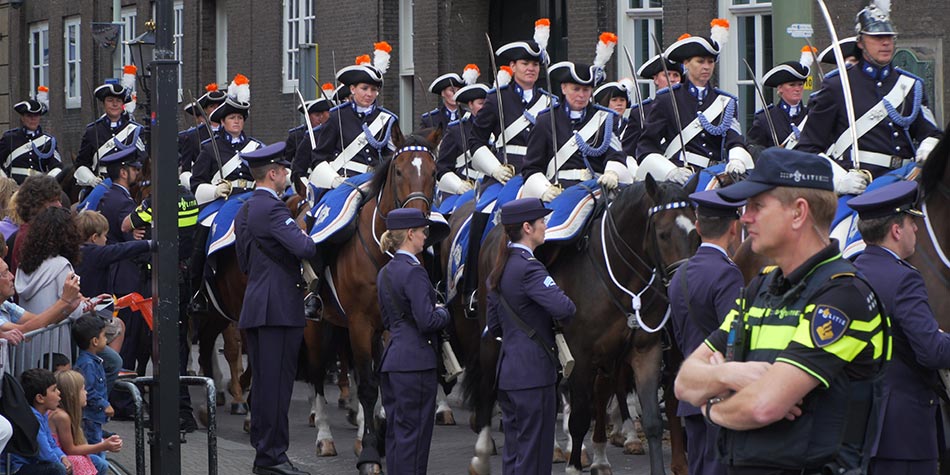
In the late 1500s Philip II was the Spanish king who was the main enemy of the Dutch and he represented the principles of 16th-century despotism and complete authority over the lives of his subjects, absolute monarchy.
The Dutch eventually defeated Philip and went on to establish what is considered to be the first nation with civil and religious liberties.

The great founder of Dutch liberty was William of Orange, venerated so much that orange became the national color. He took command of the Dutch armies in 1572 and defeated the Spanish in many battles. William was condemned to banishment by Philip II, but the States General bravely defied the king’s authority and 1581, the Netherlands formally threw off their allegiance to the Spanish crown.
The relative stability of the early 17th century enabled the Netherlands to become a world power, especially when they founded the Dutch East India Company and began their explorations of Asia and South America, and established the great trading networks that led to the Golden Age of Holland.

In 1647 the independence of the United States of the Netherlands was officially recognized in the Peace of Westphalia, agreed to by all the great European powers. However, turmoil and warfare continued in the last part of the 17th century, with naval battles against the British, 13 of them in a year and a half, and then the invasion by Louis XIV of France who conquered the Netherlands but then was defeated in 1678 by William III, and Louis was sent packing back to France.
This brought in an era of relative peace throughout the 18th century until there was another invasion by France around 1800 by Napoleon who installed his brother as King of Holland, but by 1813 he was expelled from Holland by the Dutch, with help from the Russians and Prussians.

After 1813, the Netherlands became a monarchy under the House of Orange. The people’s representation was in the Senate and the House of Representatives and they took part in decision-making, but the king still had final say in many state matters.
Finally in 1848, the Netherlands got a new constitution and from then on, the ministers were accountable for law and policy making. Parliament scrutinized their work, and the king, while he remained head of state, was left out of political decision-making. With various modifications and updates that is still the basic system of government today in the Netherlands.

The Netherlands was won by its people, acre by acre, field by field, against the best European troops of the time, the most practiced generals and what seemed to be boundless resources aimed against them.
The dramatic story of the Dutch is the tenacity with which they clung to their purposes, and the entire success which followed the victory they won after a war of unparalleled duration, the 80 years’ war against Spain.
The revolt of the Netherlands and success of Holland is the beginning of true democracy and modern civilization. It utterly repudiated the divine right of kings for the first time and the divine authority of the church, those two inveterate controllers which human progress has had to do battle with.

Not only did the Dutch create the first civil government, they taught Europe in nearly everything else: instructed communities in progressive and rational agriculture; a pioneer in navigation and discovery; the founder of intelligent commerce, international law, options trading, short selling, collapsing economic bubbles (e.g. tulip mania), and creating the first international corporation. The presses of Holland put forth more books than all the rest of Europe and had the most learned scholars. Such progress and innovation produced great economic success generating the highest per capita income in the world from about 1600 to 1720. Today their per-capita wealth ranks in the world’s top-15, with a relatively equal income distribution.
.jpg)
Those principles of democracy, tolerance, shared wealth and freedom are the very heart of modern liberty.
After his speech, the king proceeds through more of the town in parade and then returns to Noordeinde Palace for the traditional greeting from the balcony with the royal family, wrapping up festive and important day.
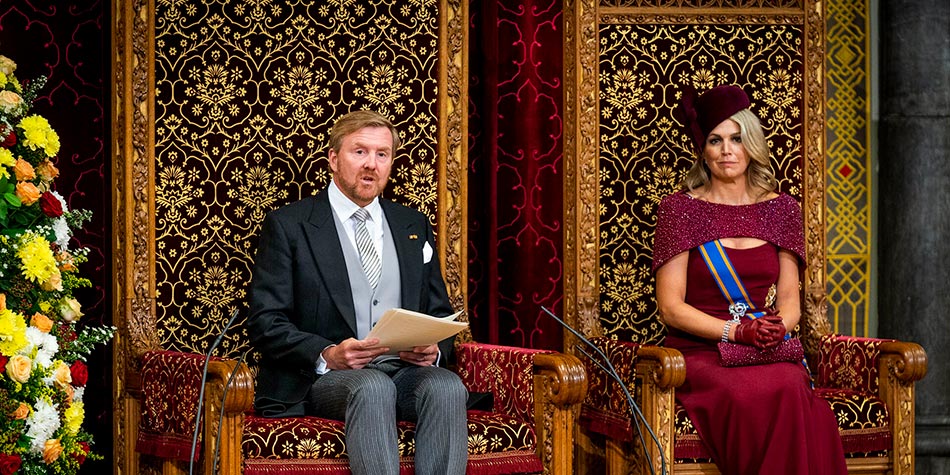
Following are excerpts from several recent years of King Willem-Alexander addressing parliament:
“We live in a prosperous and attractive country, which compares favorably with other countries. We have good public services and good infrastructure, and the rule of law is strong. There is a lot to be proud of and to build on
“Such moments of commemoration bring home to us how strong the country has become. Strong in terms of prosperity, enterprise and socioeconomic security. Strong by virtue of the democratic values anchored in our state and the rule of law: equality, tolerance, freedom and legal certainty. And strong because we have healthcare, education and a roof over our heads.

“The aim of government policy has remained the same: ensuring a future in which progress, innovation and economic growth can continue to go hand-in-hand with protection, solidarity and looking out for each other, in the best traditions of our country.
“On this day we traditionally take stock of the state of our nation, as a basis for shaping future policy. The government faces the constant task of working for growth and a better life for everyone who lives in our country.
“It is therefore the time to decide what direction we should take. To make choices that afford us room to maneuver and give us security, both in the here-and-now and for future generations. People ask: can we and our children continue to count on good healthcare, an affordable home, a job, a good education, a safe neighborhood, a clean living environment and a good pension? And they ask a question that can’t be answered with a calculator: in the Netherlands, do we live sufficiently with each other and not too much alongside each other? Building a close-knit society is a matter for everyone in our country.

“The government is also investing in historical awareness and cultural diversity. Heritage and culture show us where we came from and hold up a mirror to us in the present, so they are of great significance to our country’s future.
“Consequences of climate change necessitate substantial investment and innovations in renewable energy sources like wind, water and sunlight.
“The same is true of climate policy. Just as we must not saddle future generations with an unsustainable national debt, nor must we hand down an environmental debt. The reality is that climate policy affects every aspect of how we live and work.
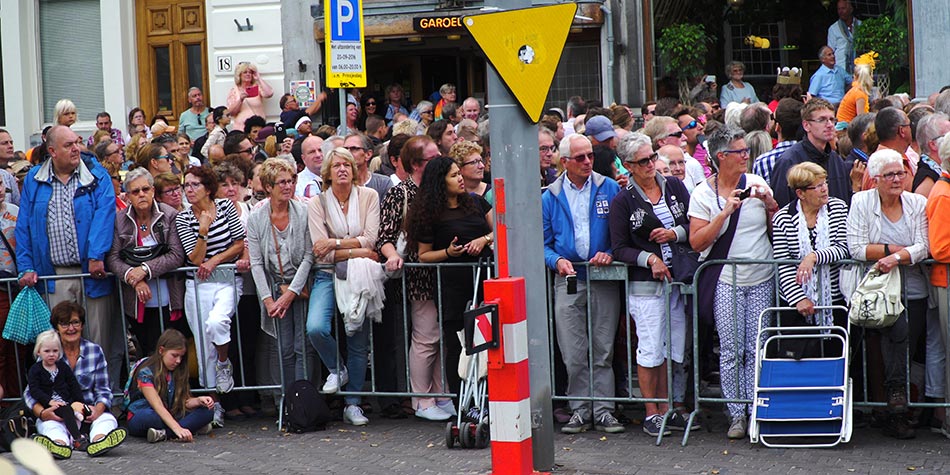
“The Netherlands is a country that offers everyone who is eligible the chance to integrate in our society and everyone who lives here the chance to feel at home. Asylum seekers who come to the Netherlands are offered decent but simple reception facilities.
“The overheated housing market has become a major problem. In the large cities, especially, affordable housing is scarce and it is difficult, if not impossible, to obtain a starter home. There is a great demand for rental properties costing €700 to €1,000 per month. The government is joining forces with municipalities, housing associations and building firms, with the common aim of better utilizing the existing housing stock, preventing excesses in the rental market and reversing the house-building shortfall. Our ambition is to build an average of 75,000 new homes a year.

“The risks and uncertainties facing our open and internationally oriented economy mainly come from abroad. Cooperation in Europe is essential for the Netherlands’ open economy. Within the European Union, the Netherlands will continue to focus on growth and jobs. The Netherlands has a direct interest in a stable euro, a robust and effective banking union, and a strong and fair single European market, with equal pay for the same work in the same place.
“Our country’s close links with the rest of the world are often enriching. Large numbers of Dutch people take foreign holidays. We communicate worldwide via social media. And we earn a large share of our income beyond our borders.
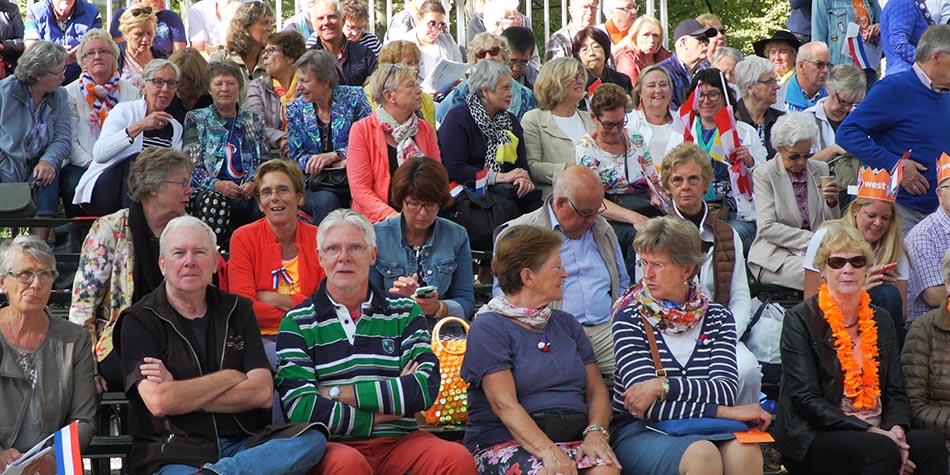
“Globalization is a fact to which we as a country must respond. Many Dutch people are reaping the benefits. But not everyone, and not in all areas. For example, increasingly people are having to compete with workers from other countries who are not always covered by or obliged to follow the same rules.
“The Netherlands fought long and hard for numerous democratic values, including the separation of church and state, freedom of expression, and freedom of religion. In our country, men and women are equal before the law, and we do not discriminate on the grounds of race, belief or sexual orientation. Everyone who wishes to live in our country must respect these values and abide by them.
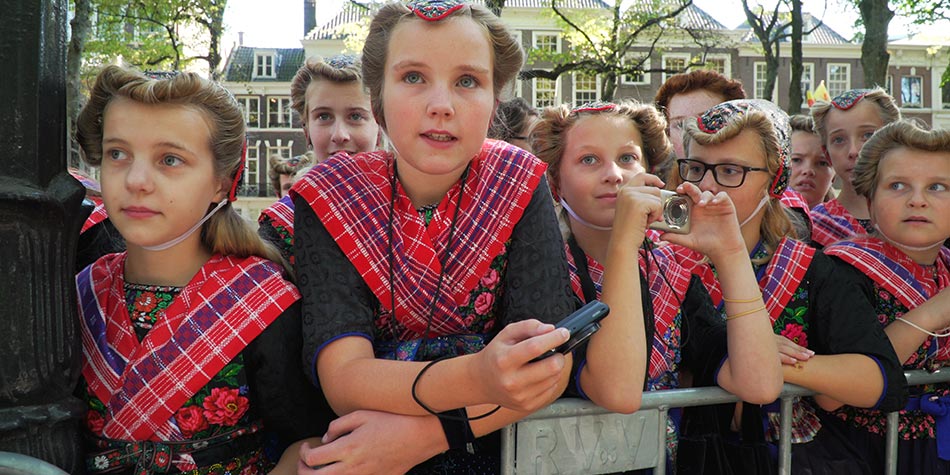
“History teaches us that ‘steady progress’ is possible by working together towards solutions, both in our own country and with our international partners. The strength of our way of life in the Netherlands lies in the fact that everyone, regardless of their origin or beliefs, can be themselves within the shared values of the rule of law. The government is investing, in numerous ways, in social cohesion, integration, observance of the law, and the strengthening of our shared norms and values. Above all, building a united society is a shared responsibility and an ongoing task for families, schools, associations – in short, for all of us. We each have our own important role to play.
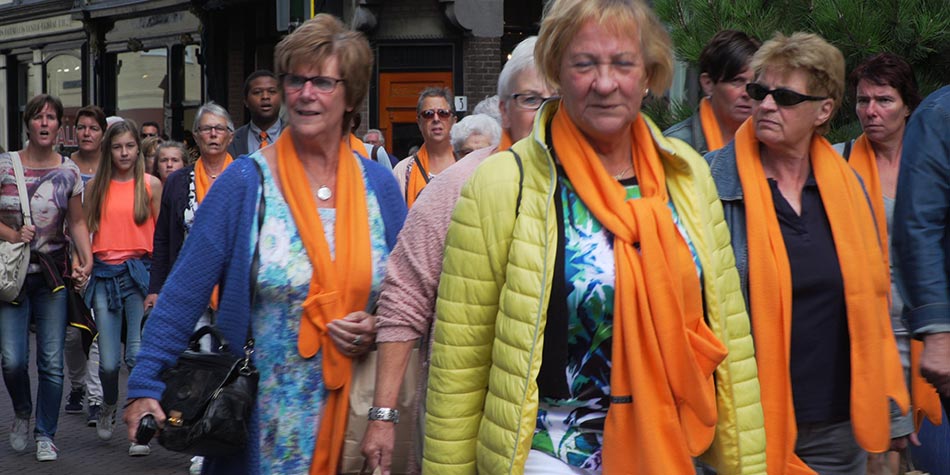
“In the Netherlands we have a long tradition of working together, step by step, to make our strong country even stronger.”
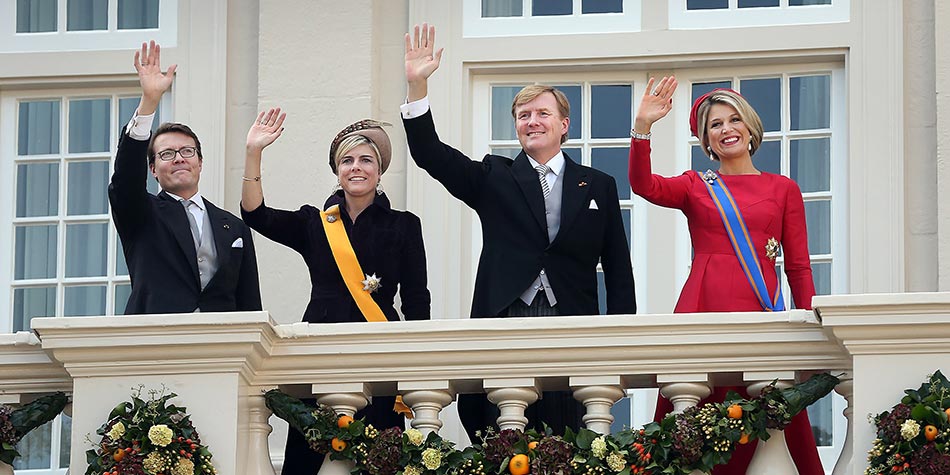
That completes my summary, combining three different years of the king’s speeches.
Visit our other pages about The Hague: